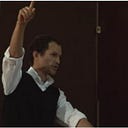I bribed the minister to get fishing quota in Namibia — Norwegian admits
A renowned Norwegian businessman told state broadcaster NRK that he had bought expensive gifts for Ministry of Fisheries officials to secure quotas in Namibia. In the programme, ‘The Good Will’, he explained how he gained quotas by offering ‘gifts’ to high-ranking officials.
Lars Aage Eldøy, the managing director of Sea Technology AS, told the Norwegian Broadcasting Corporation (NRK) in January 2013 that during the early 90's, shortly after Namibia became independent, he established a fishing company at Lüderitz.
“We thought this was a fascinating country to establish ourselves in. Previously we had been in many parts of the world. And we thought, why not Namibia too?”
This was at a time when Namibia had vast marine resources, but a poorly developed local industry, and needed investment to develop the sector. Eldøy’s company traded mostly in lobster, known as “white gold” in the industry, and the bulk of it was sold to Japan.
“This was the major industry in that town. Most people who lived there were involved in our activities,” Eldøy told the programme, The Good Will, a documentary series exploring the impact of Norwegian aid on poorer countries.
As a new fishing concern, their success was entirely dependent on being allocated sufficient quotas, he said. Eldøy told NRK openly that during the 90’s he offered inducements to the fisheries minister at the time, whom he declined to name.
He alleged that on one occasion, “We had been in a meeting in Lüderitz and were going back to Norway the following day. At the end of the meeting the fisheries minister came to me. Suddenly he takes off a watch that he would like to have repaired in Europe.”
Eldøy says he soon noticed that the watch was a fake and of little value. “I knew at once when I took the watch that this was a Rolex replica. But I did not blink, and agreed that I would get the watch repaired in Norway…
“We were dependent on having a good relationship with the government. Since we were going to fish, we tried to have a good relationship with the fisheries minister,” Eldøy told NRK.
Eldøy says he understood that he was expected to exchange the fake watch for a genuine one. Back in Norway, he bought a brand-new Rolex, worth 30,000 Norwegian Krone (approx. N$50,000 at the time).
Where the next meeting took place is not immediately clear, but the former ship engineer-turned-businessman said, “I was not yet fully into the hotel when the fisheries minister made contact. I told him that I had a fully-serviced Rolex watch for him. He was already in the lobby, waiting. He checked the watch, nodded and smiled, thanked me and left.”
“This was one of the things we did to have a good relationship with the fisheries authorities in the country… We got a greater goodwill in the country” by offering inducements, Eldøy admitted.
According to the NRK documentary, Eldøy’s company at one stage owned half of all houses in the vicinity of Lüderitz, a school, the ground on which a church stood, and had a hand in most of the town’s affairs. At its height, Eldøy sold his company for US$25 million dollars.
Norwegian firms abroad form part of that country’s overseas development aid posture, but surprisingly no charges were brought over the admission by Eldøy of how his firm got a footing in the local fishing industry.
Paulus Noa, Director of the Anti-Corruption Commission (ACC) said he was not aware of the allegations and pointed out that the gravity of the allegations are such that the person needs to make a full statement under oath.
Noa said the fact that Eldøy is not in Namibia would complicate investigations and that investigators would need a statement under oath, as well as detailed information in order to pursue the matter. There is no suggestion that any of that has been forthcoming.
The ACC is limited to cases that surfaced after the commission came into operation in 2006. If the alleged bribes took place in the 1990’s, as Eldøy alleged, the case may well fall outside of the scope of the ACC, because the law does not operate retrospectively. That does not mean that other law enforcement agencies cannot investigate though, the matter should be taken up with the police, he said at the time.
AUTHOR’S NOTE: This report was first published in the Namib Times in February 2013 and is republished here in light of the unfolding #fishrot scandal.
